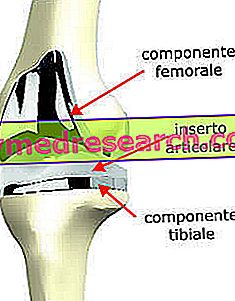Stuttering: introduction
Stuttering outlines a language disorder that has its roots in the behavioral, emotional and communicative sphere: it represents an extremely complex condition, whose therapeutic approach is equally intricate. The ascent towards stuttering healing is long and tortuous, and only with the patient's willpower will the goal be reached in a short time.
The therapies aimed at healing stuttering are not unambiguous and there is no effective standard model for all those who are affected: this verbal disfluency arises from different situations, sometimes extremely difficult to identify, therefore the heterogeneity of the triggering causes prevents the elaboration of a unique therapeutic strategy.

The theory that the stutterer should take care of language first and foremost must be dismantled and discredited, since it is not entirely correct to try to deal with language if the root problem is not treated first, trying to analyze the reason that causes the disfluency . In fact, focusing only on the fluidity of verbalization, which is nevertheless a fundamental objective, means pausing in the periphery, without eradicating the problem that causes it. As we have said, however, sometimes the search for causes is extremely complex.
Types of therapies
Therapeutic approaches to stuttering healing can be summarized as:
- self-treatment
- Use of electronic equipment
- Speech therapist and, when necessary, psychological consultation
- Pharmacological use against stuttering
It should be emphasized that stuttering is not a quickly resolvable condition, just as its manifestation is not immediate. The acquisition of the correct modalities of speaking and the mastery of language are in fact acquired gradually, so it is almost impossible to immediately recover from stuttering.
As often marked, stuttering is not only a disorder of verbalization: it is a disease in all respects, which also affects the emotional and behavioral sphere, as well as communication.
- Stuttering therapy: self-therapy
In general, self-treatment can be dealt with by adults and stutterers who realize the problem: obviously, a small child very hardly notices the disorder; consequently self-treatment is impossible. The awareness of the disorder, accompanied by the need and the desire to recover from stuttering, is the first indispensable approach for the treatment of verbal disfluency.
In self-therapy, the patient should perform autonomously some simple verbal exercises assigned by the speech therapist: the stutterer should try to cut himself off some time during the day, in order to practice speaking fluently. In general, self-therapy also includes some specialist support sessions, directly with the speech therapist.
- Stuttering therapy: use of electronic equipment
Another effective therapy against stuttering is represented by the use of particular electronic devices, aimed at improving the fluidity of the language: we talk about altered acoustic feedback, thanks to which the stutterer can listen to his voice in an altered way. The patient's voice is altered in three different ways, and then reproduced:
- Patient voice delay or DAF ( Delayed Auditory Feedback )
- Masking of some words (some words are covered, masked during playback)
- Word frequency modification or FAF ( Frequency-Shifting Auditory Feedback )
The results obtained following the treatment of stuttering patients with electronic devices are not unequivocal, so it is not possible to really predict (but only hypothetically) the healing of the disorder. In fact, some patients have benefited from this therapy, reporting surprising results, while in others no improvement was found, and in others still only slight improvements were observed.
- Stuttering therapy: speech therapist and psychological consultation
The speech therapist represents the figure of reference to whom one must turn for language disorders. Generally, therapy for the treatment of stuttering involves multiple levels:
- Identification of the peculiar aspects of the language of the patient, of the psychological factors that affect you and of the behavior;
- Desensitization of anxieties, fears and phobias related to stuttering. The patient is urged to stutter voluntarily, using words that are difficult for him to pronounce;
- Stuttering modification: the speech pathologist helps the patient to change the cadence of stuttering, trying to avoid verbal blocks;
- The patient learns to speak in a more fluid and fluent way thanks to exercises focused on breathing, on the correct articulation of the lips and tongue, and on phonation; furthermore, his conviction of "not being up to par" is dismantled with the help of the psychologist, when necessary.
The psychotherapeutic approach is particularly appropriate for those patients who, despite numerous speech therapy sessions, still stutter consistently: stuttering sometimes conceals psychological problems that flow into the difficulty of verbalization. In some affected individuals, stuttering is the simplest way to project all psychological problems.
- Stuttering therapy: pharmacological use against stuttering
Stuttering drug therapy is the last resort a stutterer can take:
- Benzodiazepines;
- Antipsychotics;
- anticonvulsants;
- Dopamine antagonists;
- antihypertensive;
- Anxiolytics, including pagoclone, an innovative drug to which many hopes (also) are placed for the healing of stuttering.
However, the use of pharmacological substances could generate serious side effects, so they must be used only when strictly necessary, subject to medical prescription.
Conclusions and reflections
Stuttering is not a disease that can be seen, but the resulting psychological effects can be so mentally invalidating as to be comparable to those caused by physical illnesses. Stuttering is not a new disease, on the contrary it represents a disfluency known since ancient times: a very ancient "therapy" for stuttering consisted in cutting the tongue, the muscles of the neck and the nerves. Needless to say, the (alleged) therapy was soon abandoned as vain, as well as extremely dangerous (high bleeding risk).
The stutterers do not lead an easy life, above all because they are constantly mocked by their comrades, considered "stupid" or even "mentally unstable", certainly we cannot say that Winston Churchill, Prime Minister of the United Kingdom around the 1940s, a well-known stutterer, could be considered as such.
Unfortunately, the stutterers, especially during childhood, are isolated from their companions because they are considered different and abnormal: although the small stutterer manages to completely overcome the problem in adulthood, derision and mockery, teasing and humiliations inflicted do not they may be forgotten and probably remain etched forever in the memory.
Stutterers can also turn to specialized centers, in which patients are subjected to targeted therapies of psychological support, a valid help for the correction of the verbalization and, above all, for the acceptance of themselves.



